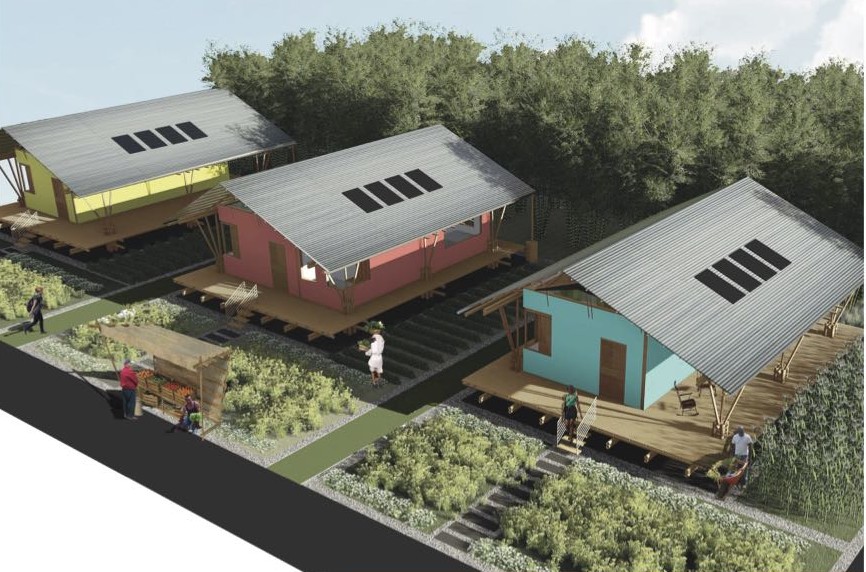GSD Alumni Involved in Resilent Home Challenge: Jaya Kader MArch ’88; Sameh Wahba MUP ’97, PhD ’02, KSGEE ’13; Ivan Shumkov MArch ’08; and Pablo Allard MAUD ’99, DDes ’03.
Over 23 million people lost their homes to natural disasters in the past 10 years. On December 14, the international Resilient Homes Design Challenge, a project organized by the World Bank, Build Academy, Airbnb, GFDRR and UN-Habitat, successfully concluded. Over 3,000 professionals from over 120 countries participated in the Challenge, resulting in over 300 team submissions. A jury of international experts selected three winning designs for each of the three scenarios.
Winning designs will be published and winners will be invited to exhibit at the World Bank, and flown into Washington DC, and other selected global venues. Winning designs could also eventually inform resilient housing or reconstruction work for World Bank-funded projects in places like the Caribbean, South and East Asia, etc. View the list of winners here and the press release here.
Several GSD alumni were involved with the Challenge. Head of Jury was GSD Alumni Council member Sameh Wahba MUP ’97, PhD ’02, KSGEE ’13, who serves as the Director for Urban Territorial Development and Disaster Risk Management for The World Bank Group. Pablo Allard MAUD ’99, DDes ’03, the Robert F. Kennedy Visiting Professor of Latin American Studies at the GSD, was also a member of the Jury. Additionally, Ivan Shumkov MArch ’08 is CEO and Founder of Build Academy.
GSD Alumni Council member Jaya Kader MArch ’88, founder and principal of KZ architecture, and her team at KZ architecture were named a winner. The proposed dwelling by KZ architecture is fabricated in its majority out of bamboo, a low cost, highly sustainable and renewable building material, widely available worldwide, lightweight, durable, flexible, easily cultivated and harvested. Its quick growth and easy handling make it an ideal material for beautiful low-cost housing. The criteria for selection included pragmatic designs that suited the local cultural context and whose construction process would use local materials and enable local employment rather than requiring significant external expertise and materials. Resilience and cost-effectiveness aside, sustainability, simplicity, cultural adequacy, and the creation of a sense of ownership through community involvement were accordingly major considerations and a common theme in the final selection process.

